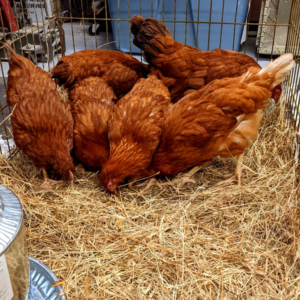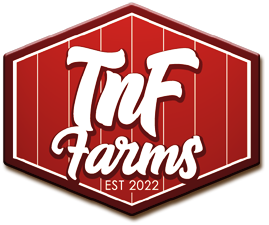Non-GMO fed Poultry at TnF Farms

At TnF Farms, our commitment to sustainable farming and homesteading extends to our diverse poultry flock. Our hens include several breeds, including Rhode Island Reds, Buff Orpingtons, Leghorns, and a particular favorite of Faith’s – Silkies. Our experience with these feathered friends has been a mix of what we knew from research and the invaluable lessons we’ve learned through hands-on care.
Rhode Island Reds, known for their hardiness and exceptional egg-laying abilities, have been a cornerstone of our egg production. Buff Orpingtons, prized for their friendly demeanor and cold-hardy nature, add a touch of charm to our flock while contributing to our egg supply as well. Leghorns, with their remarkable egg production, have been essential for keeping our farm self-sufficient in terms of farm fresh eggs.
We have all kinds of Silkies at TnF Farms
Silkies, however, hold a special place in Faith’s heart. These distinctive birds, known for their fluffy plumage and gentle temperament, have become a beloved part of our chicken family. They may not the producers in egg production as some other breeds. But their unique appearance and delightful personalities make them treasured members of our flock.
Our chickens have taught us the importance of providing a safe and comfortable environment. We’ve invested in building secure coops and runs to protect them from predators, ensuring their well-being. Proper nutrition and access to fresh, clean water have been essential to their health and productivity.
In addition to eggs, our chickens contribute to our sustainability efforts by providing nutrient-rich manure. This enhances our soil and benefits our garden. This closed-loop system aligns with our goal of responsible and eco-friendly farming practices.

